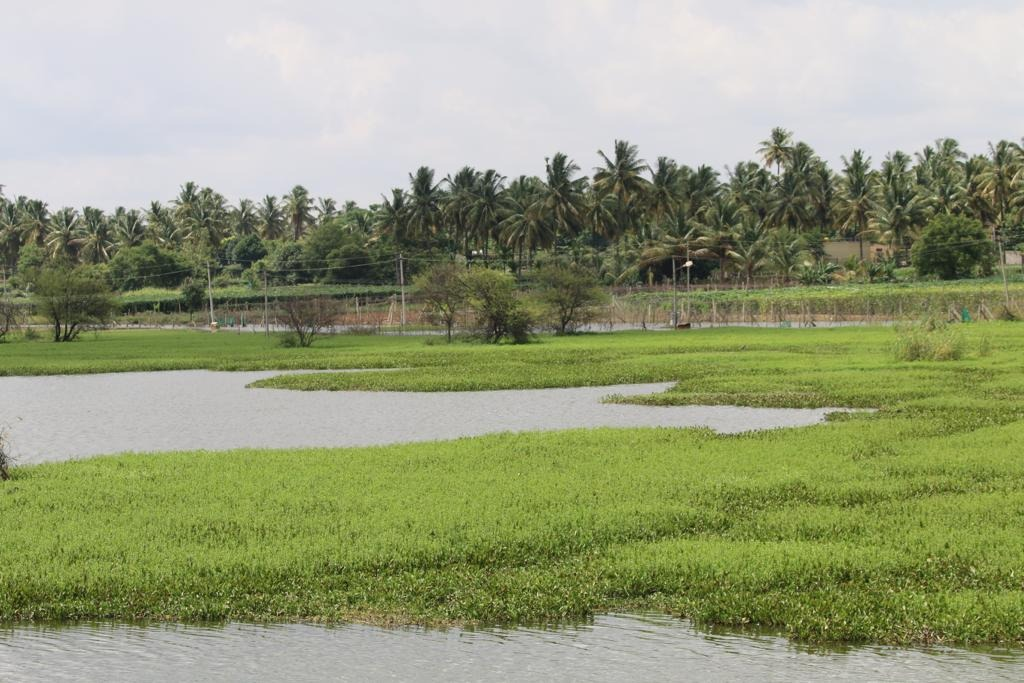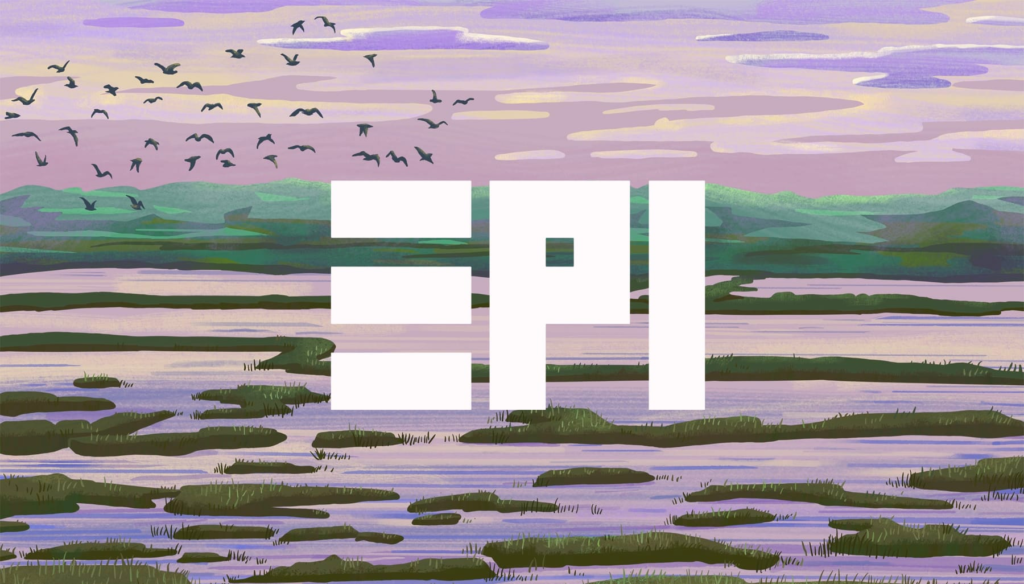Environment Justice Matters_ Vol3. Issue 8
ESG Features
Taluk level Lake Conservation Workshops
As part of the Taluk level awareness workshops in collaboration with the Karnataka State Legal Services Authority on protection and rehabilitation of lakes and water commons, ESG conducted five Taluk level workshops during 10-20 June 2022 covering Doddaballpura, Devanahalli, Hoskote, Anekal and Nelamangala taluks of Bengaluru Rural District. This witnessed participation of officials from Local Governments (urban and rural), representatives of various government agencies, civil society, farmers movements, media, academia, etc. These workshops were organised in collaboration with Bengaluru Rural District Legal Services Authority and District Lake Protection Committee (Bengaluru Rural). In all over 700 participants were trained in understanding the implications of the Karnataka High Court orders in ESG Lakes PIL and also various laws and orders that are applicable to the conservation and governance of lakes and such other water commons. Please read the report here .

9K or Vombatkere Movement
Such workshops will energize efforts to protect, conserve and rehabilitate lakes, kalyanis, ponds, kaluves (canals), farms, kavals (grazing pastures), forests, etc and their return to good health is sure to succeed with collective efforts in a matter of two or three years so every one of these taluks can be water secure. To help build ecological, public health, and Socio-economic security in the villages and towns of the taluks, it is critical that water commons are protected as sacred zones. Towards this end, Environment Support Group (ESG) is working across the State to ensure all water commons are protected for posterity and has launched the ‘Vombatkere’ – 9k Campaign.
Conserving Lakes = Building Water Security
In an example of a collaborative effort by community residents, villagers, and panchayat workers, the residents of Zed Earth, a gated community in Dodaballapur, Bangalore, haven’t had to spend on water tankers at all this year. The community residents took up the rejuvenation and restoration of the old and abandoned Kadathanamale Lake behind their community, with all costs from initial restoration, maintenance, and upkeep and cleanliness being borne by them.
Other News
Environmental Jurisprudence
Recently, the Supreme Court invoked the Public Trust Doctrine once more while issuing directions in the TN Godavarman Thirumulpad case to institute a minimum 1 KM Ecologically Sensitive Zone For Protected Forests, banning permanent structures there and also banning mining In Wildlife Sanctuaries & National Parks. Observing the State has to act as a trustee for the benefit of the public in protection and use of natural resources and to achieve long-term sustainable development, it stressed the State cannot confine its efforts merely to facilitating exploitation of natural resources for economic gain. It needs to be seen how this ruling will work in advancing the objectives of the Forest Rights Act, 2006 that protects the rights of tribal and forest dependent communities.
Climate Change
On World Environment Day this year, a record 1.5 lakh saplings were planted in Chushul, Ladakh. This area is above the natural tree line where climatic conditions are unsuitable for any tree to survive. A similar negative outcome of such tree plantation activities was witnessed in the Banni grasslands of Kutch in Gujarat. Ecologist Chetan Misher writes why Greening the desert is a disaster and how such tree planting is an outcome of official and popular naive representation of desert ecosystems as ‘degraded land’.
With “Only One Earth”, UNEP is attempting to wake up the world’s population to the fact that it is “already using the equivalent of 1.6 Earths to maintain the current way of life” and “ecosystems cannot keep up with such demand”. This demand is largely from the world’s wealthiest countries, the richest 1% of the global population, whose greenhouse gas emissions are more than the poorest 50%. The future of the planet thus hinges on the rich cutting back on their ‘development’ drastically so everyone in the world has an equitable opportunity for a reasonably good quality of life.
The worsening crisis is indicated by increasing UN humanitarian appeals for money to tackle extreme weather events like droughts or floods. It is now eight times more than 20 years ago, as pointed out by a brief by Oxfam. Rich countries which are responsible for most of today’s climate change impacts are only meeting around 54 percent of appeals since 2017, and for every $2 asked, less than a dollar is committed. A multi-country analysis has reemphasised meanwhile that “Without putting the rights and knowledge of Indigenous Peoples at the heart of the implementation, monitoring, and reporting of the NDCs, this study shows that it is not possible to effectively combat climate change”, according to a new report from Asian Indigenous Peoples Pact (AIPP).
Environmental Sociologist Amita Baviskar in her article: The Social Experience of Heat: Urban Life in the Indian Anthropocene reminds us how “we forget that we are kept cool by extracting services and resources from other people and places, even as we make life less liveable for others. And yet, so neatly is the logic of air conditioning nestled into all other aspects of the life we desire, or the life we are compelled to live, that it is impossible to imagine walking out”. She also argues that “Only drastic steps will soften the climate blow”,
Forests and Biodiversity
Maharashtra became the first State in India to declare critical wildlife habitats as per the Scheduled Tribes and Other Traditional Forest Dwellers (Recognition of Forest Rights) Act 2006. While 10 such habitats have been identified, three new wildlife sanctuaries, and 12 new conservation reserves are in the offing.
Meanwhile, politics played a strong role in determining the fate of Cauvery, what with Karnataka Chief Minister Basavaraj Bommai calling Tamil Nadu Chief Minister Stalin’s letter opposing the Mekedatu dam, a political stunt. Stalin has asked if Karnataka’s move to secure permission for the dam from Cauvery Water Management Authority is legally tenable. Meanwhile, “Puducherry Agriculturists’ Association has urged Chief Minister N. Rangasamy to meet Prime Minister Narendra Modi and seek his intervention in preventing Karnataka from building a dam at Mekedatu on the Cauvery” even as a Tamil Nadu government team plans to meet Jal Shakti Minister to express its opposition to the Mekedatu dam project. The fate of Cauvery has never been more torn apart than it is now.
Pollution
On the eve of World Environment Day, the Ministry of Housing and Urban Affairs asked all urban local bodies (ULBs) to phase out the use of single-use plastic, which is a major cause and source of pollution. This directive is an opportunity to recall that such reminders have been issued by regulatory authorities, such as the Central Pollution Control Board’s directive in February with the deadline to implement being July 1st, 2022. This begs the question if such centralised interventions without decentralization of pollution control can work.
Environmental Governance

The Yale Centre for Environmental Law and Policy and Columbia University’s Earth Institute issued the 2022 Environmental Performance Index (EPI) report recently. It is projected as a “data-driven summary of the state of sustainability around the world” and uses “40 performance indicators across 11 issue categories” to rank “180 countries on climate change performance, environmental health, and ecosystem vitality”. India has been ranked at the bottom of this list, scoring merely 18.9 points of a possible 100. Myanmar, Vietnam, Bangladesh and Pakistan, all in the South and South East Asian region, provided India with dubious company. Expectedly, India was quick to react with the Indian Environment Ministry issuing a statement saying EPI 2022 is “based on unfounded assumptions”. Such a dismissal of the study has drawn criticism in India.
Environment Support Group (Trust)
1572, 36th Cross, Ring Road , Banashankari II Stage
Bangalore 560070. INDIA
Tel: 91-80-26713560 | Voice/Fax: 91-80-26713316
Website: esgindia.org Email: [email protected]
Follow our Facebook, Instagram, Linkedin and Twitter page
- ESG is also registered to secure support under Corporate Social Responsibility (CSR) scheme of the Ministry of Corporate Affairs. Reg No. -CSR00017320
- Environment Support Group(ESG) is eligible to receive foreign donations/grants per the Foreign Contribution Regulation Act (FCRA)
Your Monetary Contributions Keep Us Working
Donate Via UPI
(The QR Code is applicable to Indian/Domestic donors. PAN Mandatory. Kindly share the details to [email protected] after the UPI payment.)

